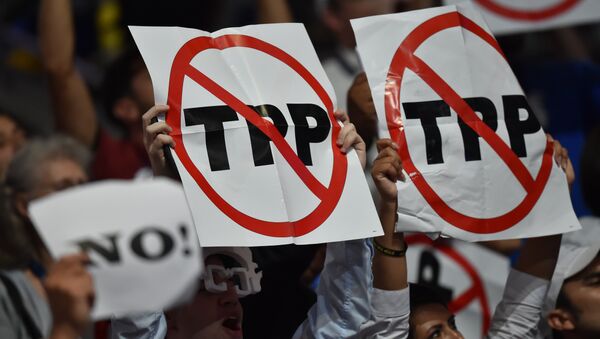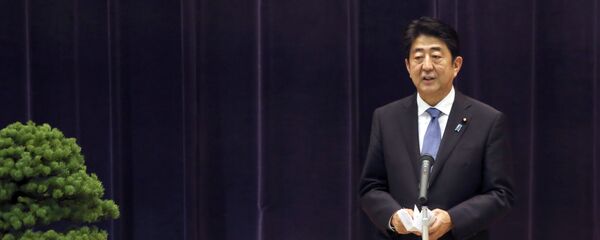For instance, the revenues of Vietnamese suppliers of sewing products, shoes and furniture could have multiplied thanks to the abolition of trade barriers. However, the TPP deal could also have a negative impact on certain companies in the Asian-Pacific Region, experts argue.
"The TPP would have been beneficial only for export-oriented enterprises," Vietnamese economist and businessman Nguyen Thanh Phong told Sputnik. "Small and medium-sized businesses, oriented on the domestic market, were anxious about not being able to compete with transnational corporations […]. To survive the competition and develop export-oriented production, we need to change a lot — from the government's policy to the way of making business, and this takes time," the expert added.
In his turn, prominent Russian expert on Vietnam Vladimir Kolotov said that the TTP could also prove dangerous in terms of the respect for state sovereignty.
"Under the TPP, transnational corporations (TNCs) can file a lawsuit against the state government if its decisions prevent them from getting benefits and even win such cases. And this is a threat to the sovereignty of the states, which is very dangerous," Kolotov told Sputnik.
In addition, the head of the Research Center for Vietnamese Studies, economist Vladimir Mazyrin pointed out that participation in the TPP would pose a serious threat to the existence of the young branches of the Vietnamese economy, such as the livestock industry.
American standards of food quality, created for the benefit of transnational corporations, promote the use of GMOs, and this is unacceptable for the European market, which is also important for Vietnam, the expert explained.
On Monday, US President Donald Trump signed an order withdrawing the United States from the TTP free trade agreement, fulfilling his campaign promises. Following the announcement, Australia has been seeking to reformulate the deal, however, Japanese authorities stated that without the US, the TPP pact is "meaningless."
The TPP was supposed to remove barriers to trade among its 12 signatories, which together account for 40 percent of the world's economy: Australia, Brunei, Canada, Chile, Japan, Malaysia, Mexico, New Zealand, Peru, Singapore, the United States and Vietnam.




